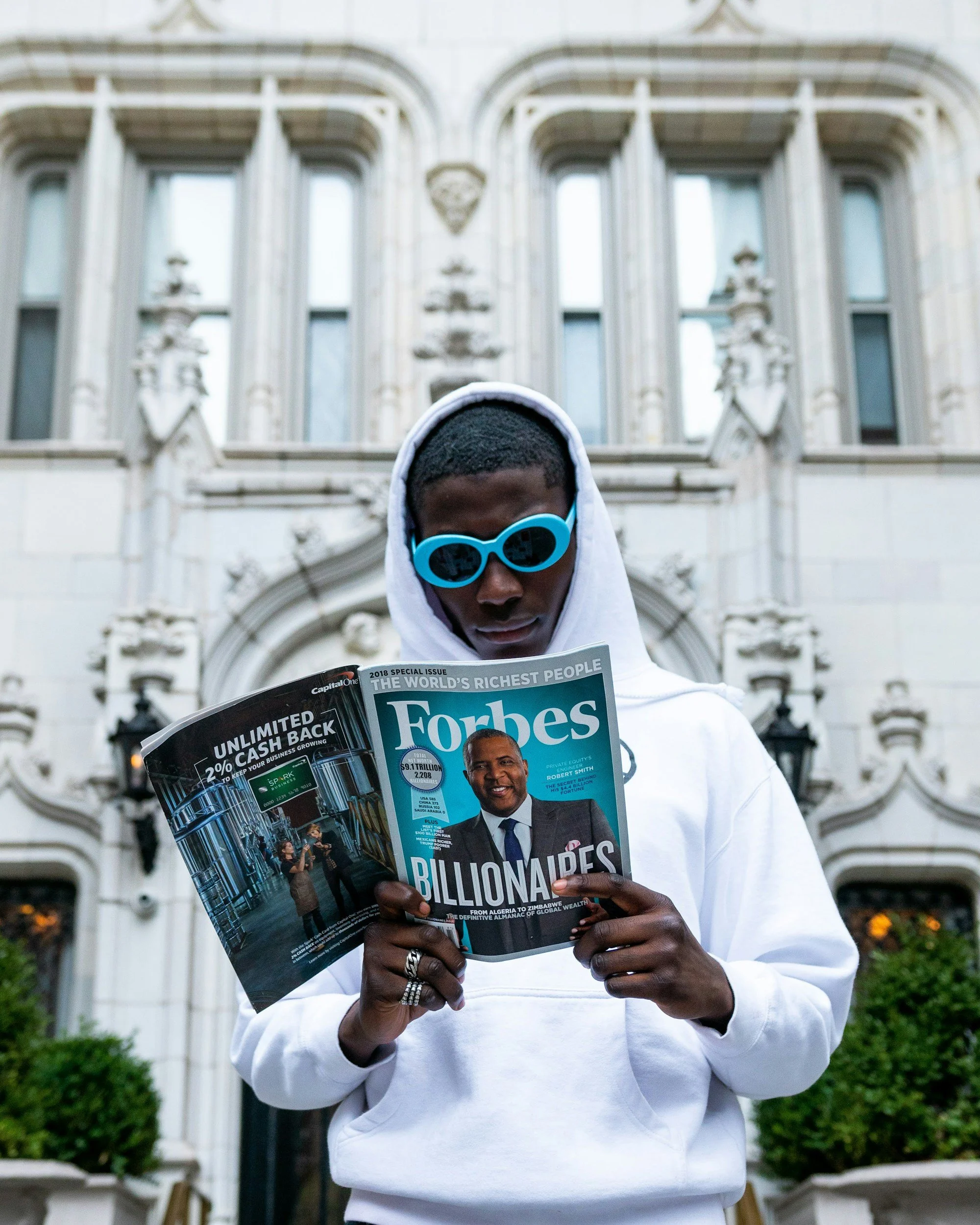From Ishmael to They Could Be Saviors: Exposing the Billionaire Myth
How Ishmael Shaped My Writing
When I first read Daniel Quinn’s Ishmael, I didn’t expect it to unsettle my entire view of the world. The book begins with a man answering an ad from a teacher looking for a student. The teacher turns out to be a gorilla. What follows is a long conversation about human history, culture, and the way we live on this planet.
At first, I was caught by the oddity of the setup. But as the dialogue unfolded, Quinn asked me to believe that civilizations are built on stories. The story we are told every day is that humans are the masters of the earth, entitled to take as much as we want. Ishmael showed me that this story is not a law of nature. It is something we invented, and something we could choose to replace.
Fiction as a Different Kind of Teacher
Quinn could have written a nonfiction book about philosophy or anthropology. Instead, he placed the ideas inside a story. That decision matters. Fiction works differently than an argument or an essay. You can tune out a lecture, but a story lingers. It draws you in emotionally and only later do you realize your perspective has shifted.
While reading Ishmael I understood that fiction could be more than entertainment. A novel can also function as a thought experiment. It can carry difficult truths in a way that slide past resistance. That realization shaped how I approached my own book. I wanted to tell a story that pulls readers forward, while also planting questions that refuse to go away once the last page is turned.
Questioning the Myths We Live By
What Ishmael did for me was make the invisible visible. It exposed the cultural myths that run quietly in the background of our lives. Quinn described modern, industrial civilization as the “Takers.” Their belief system rests on a few assumptions: that human beings stand apart from nature, that we have the right to consume without restraint, and that progress is measured by how much we dominate. Once you recognize those assumptions, you start seeing them everywhere—in advertising, in politics, in the way corporations justify endless growth.
One of the most powerful ideas in the book is Quinn’s argument that the Taker consciousness began when humans started locking up food. Once food was hoarded, power followed. Those who controlled the supply decided who ate and who starved. That shift created hierarchy, inequality, and eventually the myth that scarcity is natural.
This insight connects directly to the world of billionaires. Today there is still abundance on this planet, enough for everyone, yet suffering continues because resources are locked away. Wealth is concentrated in the hands of a few while billions live with too little. The same logic that once justified hoarding grain now justifies hoarding capital.
My novel takes aim at this myth directly. We are told that billionaires represent progress, the embodiment of ambition and intelligence rewarded. That is the story. But what if hoarding vast amounts of money while the planet burns and people suffer is not a sign of achievement but a form of sickness?
From Ishmael to They Could Be Saviors
At the end of Ishmael, the student has to decide how to carry the lesson forward. There are no easy answers, only the weight of responsibility. That stayed with me.
They Could Be Saviors carries that same urgency. It tells a story where concentrated wealth is exposed as the root of ecological collapse, and possibly humanity’s extinction, and where transformation begins only when those with the most power are forced to confront the damage they’ve done.
This is where fiction can matter most. A story can open a space for readers to imagine change in ways policy papers or statistics rarely can. By showing powerful figures broken down, humbled, and challenged to act differently, I wanted to invite readers to imagine that transformation is possible, even for those we think are beyond reach.
Stories matter because they shape what we believe is possible. Ishmael showed me that the future is not fixed. They Could Be Saviors is my attempt to take that lesson forward, and to write a story that refuses to let us accept the myths destroying us.
There Are NO Ethical Billionaires
At some point, we have to stop pretending this is innocent.
Billionaires aren’t just a byproduct of ambition or innovation. They are the direct result of systems built to hoard wealth at the top while leaving everyone else to scramble for scraps. But this isn’t about flawed systems alone. It’s about the people who knowingly profit from them—people who understand exactly how and why they’re able to hold more money than they could spend in a hundred lifetimes, while millions live without clean water, safe housing, or medical care.
These billionaires aren’t oblivious. They are willfully unethical.
Even the most beloved among them—those with glowing reputations, charitable foundations, and uplifting personal brands—are complicit. Oprah Winfrey is a perfect example. She is widely admired for good reason. She’s self-made. She built a global media empire. She’s funded schools, awarded scholarships, and championed self-empowerment. People point to her as proof that wealth and goodness can coexist.
And yet—she’s still a billionaire.
That means she’s chosen to retain a level of wealth that could transform entire systems. With one decision, she could wipe out debt, fund universal preschool across a state, or permanently end homelessness in multiple cities. But she doesn’t. And we don’t question it, because her generosity makes us feel better about the fact that she’s hoarding resources. Her charity becomes her shield.
But ethics aren’t measured by how many schools you build after you’ve accumulated billions. They’re measured by the choice to keep the billions in the first place.
The same moral sleight of hand plays out in the Giving Pledge, the initiative launched by Bill Gates and Warren Buffett to encourage billionaires to give away half their wealth. More than 240 of the world’s wealthiest people signed on, including Oprah. But over a decade later, only a small fraction have actually decreased their net worth. In fact, most are far richer now than when they pledged. Their investments grow faster than their giving.
Meanwhile, much of their "philanthropy" is routed through private foundations or donor-advised funds that offer massive tax advantages and allow them to retain control.
Source: Institute for Policy Studies – Gilded Giving 2022
They aren't dismantling the system. They're gaming it.
A rare exception is Yvon Chouinard, founder of Patagonia. In 2022, he transferred ownership of the entire $3 billion company to a specially designed trust and nonprofit to ensure all profits—about $100 million a year—go to fighting climate change. He gave up control. He gave up the title. He built a system designed not to benefit him.
Source: Patagonia – Earth is now our only shareholder
That’s what it looks like to actually divest from power. But even then—he waited until he was 83.
So where’s the line? How much wealth is too much?
Most people draw that line just above where they are. Someone with $100 million says billionaires are greedy. Someone with $10 million says they’re not the problem. But we know better. The difference between $50,000 and $500,000 changes your lifestyle. The difference between $500,000 and $5 billion changes entire systems. It buys influence, manipulates markets, and locks in dynasties. That level of wealth can’t exist without others going without.
According to the World Bank, over 800 million people—more than one in every 11 humans—live on less than $3.00 per day, the current international poverty line.
Source: World Bank – Poverty and Inequality Platform
Meanwhile, billionaires spend more on tax shelters than most nations spend on education. And they know it. They have wealth managers, lawyers, analysts, strategists. They understand what their money could do. They know what it means to keep it anyway.
That is not ethical. That is not ignorance. That is deliberate immorality.
Some will argue it’s the system that allows it, and that’s true. But the system is made up of choices, and billionaires are making the most selfish ones imaginable. They are choosing legacy over justice. Power over equity. Control over humanity.
And for every pledge, every grant, every glossy foundation website—there are millions of people still waiting for basic dignity. People dying from curable diseases. Kids going to school hungry. Entire communities suffering so one person can keep their private jet.
There are no ethical billionaires. Not because they’re misunderstood. Not because they don’t care. But because they know—and they still choose to keep it all.
So if you’re wondering where the line is—the one between ethical and unethical wealth—it’s not fuzzy. It’s not relative. It’s here:
When your excess comes at the cost of someone else’s survival, you’ve crossed it.
And billionaires crossed it a long time ago.


